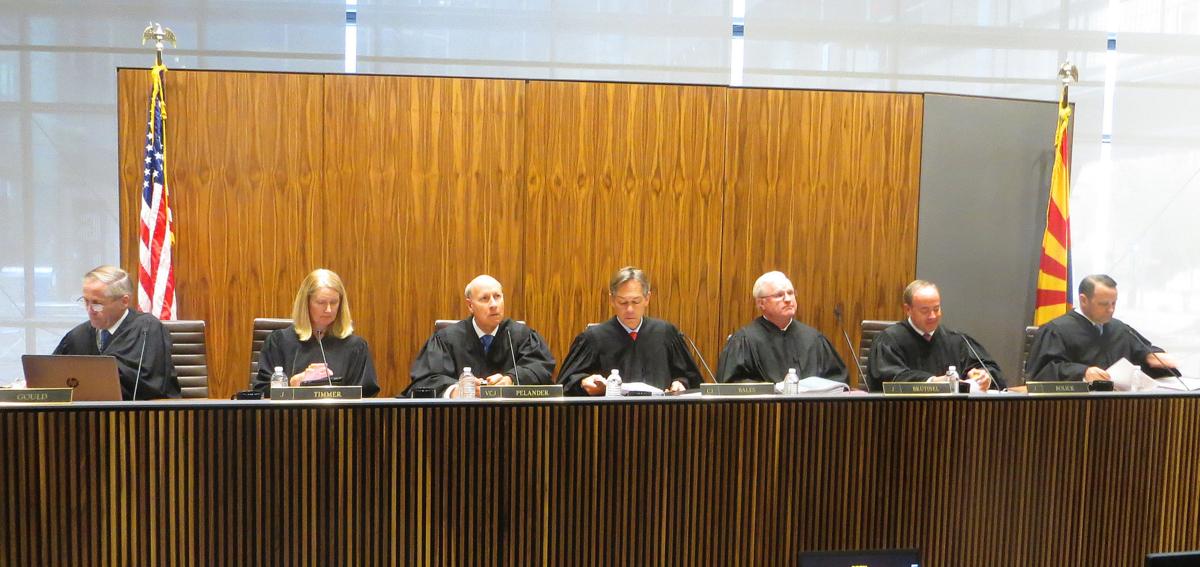PHOENIX — The question of whether cities can decide what to do with seized and forfeited guns could end up being decided based on how extensive the Arizona Supreme Court believes is the right of local governments to make their own laws.
During nearly an hour of arguments Tuesday, the justices peppered attorneys with questions ranging from whether they should even intercede in the dispute between Attorney General Mark Brnovich and the city of Tucson over its gun-destruction ordinance and the constitutionality of a 2016 law.
Brnovich says that law gives him the power to withhold money from cities that enact any local laws that he finds run afoul of state statutes.
But Rick Rollman, representing the city, told the justices the issue is more simple than that.
He pointed out that the Arizona Constitution allows cities to establish their own charters. Nineteen, including Tucson, have gone that route.
Rollman said the constitutional crafters wanted to give city councils the right to write their own ordinances on matters of purely local concern. And he said the 2005 Tucson ordinance requiring that handguns seized or forfeited to Tucson police fit squarely in that area.
Assistant Attorney General Paul Watkins disagreed, contending that ordinance is trumped by state laws, one which specifically bars cities from regulating firearms and the other that mandates firearms coming into the city’s hands have to be sold.
And since the Tucson City Council has refused to rescind its ordinance, Watkins told the justices they should uphold the 2016 law tying state aid to compliance with state laws and allow Brnovich to direct the state treasurer to withhold all of the city’s state aid.
The City Council has temporarily suspended the gun-destruction program while the issue is resolved in the courts.
Rollman said a finding for the state would undermine the reason the crafters of the Arizona Constitution allowed cities to adopt charters in the first place.
“The people that are being governed have the best opportunity to express their concerns, and the local government has the best opportunity to respond,” Rollman said.
But Justice Clint Bolick said that right may not be as absolute as Rollman contends.
“I see absolutely nothing that indicates that state law is ever subordinate to city ordinances,” the judge said.
Rollman, however, said he reads the constitution in a more liberal fashion, saying it was crafted to “allow local laws to control over local matters.”
He pointed out that the high court has, in previous cases, upheld the right of cities to decide how to conduct their local elections and how to dispose of land and buildings they acquire. Rollman said this is no different.
That argument, however, did not satisfy the justices.
“How do you identify what is a purely municipal affair?” asked Chief Justice Scott Bales. He said an argument could be made that how a city deals with seized personal property like firearms “is very different than how a city chooses its council.”
Rollman said where to draw that line “is indeed a very difficult task,” suggesting the justice may have to provide some guidance.
Justice Ann Scott Timmer said the problem could be resolved simply: If a city ordinance conflicts with state law, then the state law prevails.
“What’s wrong with that?” she asked.
A lot, Rollman responded.
“Once you begin to say the state can occupy any area, particularly where it involves personal property of the city, you’re going to effectively nullify the charter authority,” he said.
“Why bother with a charter?” Rollman asked. “The charter is now meaningless.”
Justice John Pelander noted that part of Watkins’ contention that state law trumps the ordinance is based on the argument that there is a constitutional right to bear arms. More to the point, the judge said, the contention is that allowing Tucson to destroy guns interferes with that right by making fewer guns available and therefore more expensive.
“This Legislature was motivated by the federal and state constitutional rights to bear arms,” Watkins acknowledged.
But Watkins told the justices that it would be just as illegal for Tucson to require that seized guns be sold if the Legislature had instead directed they all be destroyed.
Pelander suggested that undermines the state’s contention that lawmakers can cite the Second Amendment as a legitimate reason to say their laws on guns overrule city ordinances.
The justices could sidestep the entire legal fight and simply decide they will not intercede in the fight between the state and the city, at least not at that point.
Tucson already has filed a separate lawsuit in Pima County Superior Court asking a judge there to declare unconstitutional the 2016 law giving Brnovich the power to order state aid withheld. Whatever the judge there rules would likely be appealed by the losing side.





